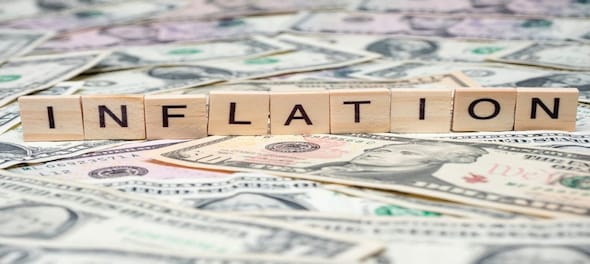
The worst of inflation may be over for Asian countries in the current cycle more than two years into the pandemic. According to Morgan Stanley, Asia's inflation has likely peaked, but "a renewed rise in oil prices could reinject upward impetus to the inflation path".
Morgan Stanley does not expect a sharp increase in interest rates in the region. It sees "less risk of aggressive pro-cyclical tightening" that Asia has had to take up in the previous cycles of rising US rates and the dollar — which means central banks in Asia may not be as hawkish as they have been in the past in response to unfavourable macroeconomic conditions.
The report comes at a time when major central banks have already hiked key COVID-era interest rates sharply — in a bid to tighten the supply of money and control the pace of rising consumer prices — to tackle sticky inflation around the globe. However, a persistent surge in the US dollar to 20-year highs is putting pressure on currencies, making the situation trickier for Asian central banks — and not the local macro environment.
The rupee, for instance, has hit a series of all-time lows against the US dollar, even as it remains one of the better performing Asian currencies for the year.
Morgan Stanley is of the view that the current cycle is "very different" for Asia compared with the situation in 1997-98 (the Asian crisis) and 2013 (the Southeast Asian haze). In this cycle, according to the brokerage, the main anchor to central banks' policy reaction is the domestic growth and inflation trajectory.
It does not expect Asian central banks to tighten the policies into restrictive territory and sacrifice domestic demand in the process. It, in fact, expects Asia’s growth differential to increase significantly with the US and other developed markets in 2023 assuming China reopens in the spring of 2023.
Crude oil prices spiked more than three percent on Monday, in a rebound from their lowest levels in about nine months, after Reuters reported the OPEC Plus grouping of top producers is mulling a reduction of more than one million barrels per day — the biggest cut during the pandemic — at an upcoming meeting on October 5.
Still, oil is about 36 percent below a 14-year peak touched in March this year.
According to Morgan Stanley, currencies across Asia are depreciating because of a stronger dollar environment and not because of any existing imbalances related to the Asia macroeconomic situation. "This is best reflected by the fact that trade-weighted exchange rates in the region have been relatively stable in this cycle," it said in its report dated October 2.
Check out our in-depth Market Coverage, Business News & get real-time Stock Market Updates on CNBC-TV18. Also, Watch our channels CNBC-TV18, CNBC Awaaz and CNBC Bajar Live on-the-go!


Jharkhand Lok Sabha elections 2024: All about INDIA bloc candidates
May 14, 2024 2:52 PM
SAD's Harsimrat Kaur declares assets worth ₹135 crore
May 14, 2024 1:18 PM
PM Modi files nomination for 3rd term from Varanasi Lok Sabha seat
May 14, 2024 10:15 AM

